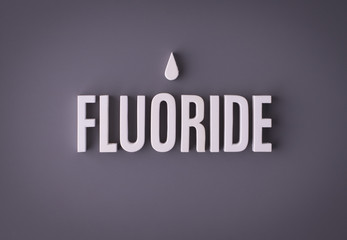
Niacin and CV Risk: Should Advice on Intake Change?
A recent study linking a niacin derivative to an increased risk for cardiovascular events has raised questions about the safety of this B vitamin, which is added to many food staples in the Western diet and taken in the form of supplements.
The findings, which were published in Nature Medicine, may also help explain why taking niacin, which lowers low-density lipoprotein cholesterol and raises high-density lipoprotein cholesterol, did not lead to a reduction in cardiovascular events in major clinical trials.
But could this essential micronutrient really have an adverse effect on cardiovascular risk, and what are the implications for niacin intake?
Senior author of the new study Stanley Hazen, MD, believes some prudence on excessive niacin intake may be justified.
"I'm not suggesting we should completely avoid niacin — it is an essential nutrient, but our results suggest that too much may be harmful," Hazen said.
Niacin supplements are also sold with claims of antiaging effects, arthritis relief, and boosting brain function, although none of these claims have been proven. And the related compound, nicotinamide, is recommended to prevent skin cancer in high-risk patients; however, a recent study questioned that guidance.
"I would say to the general public that avoiding supplements containing niacin or related compounds could be a sensible approach at present, while these findings are investigated further."
Other experts are unsure if such action is justified on the basis of this single study.
Residual Cardiovascular Risk
Hazen, who is chair of the Department of Cardiovascular & Metabolic Sciences, at the Lerner Research Institute, Cleveland Clinic, Cleveland, Ohio, explained to theheart.org | Medscape Cardiology that they did not set out to study niacin.
"It began as a study to look for novel pathways involved in residual cardiovascular disease risk — the risk for cardiovascular events after adjusting for traditional risk factors such as cholesterol, blood pressure, and diabetes."
The researchers began looking for compounds in plasma that predicted future adverse cardiovascular events in individuals undergoing elective diagnostic cardiac evaluation. Two of the leading candidates identified were niacin derivatives — 2PY and 4PY — that are only formed in the presence of excess niacin.
They then developed assays to measure 2PY and 4PY and conducted further studies in two validation cohorts — 2331 US individuals and a European cohort of 832 individuals. In both cohorts, elevated plasma levels of 2PY and 4PY predicted future adverse cardiovascular events, with a doubling in cardiovascular risk seen in those with levels in the highest vs the lowest quartile.
To move beyond these observational studies and to explore a potentially causal relationship, Hazen's team went on to perform genome-wide association studies and found that genetic variants that tracked with higher levels of 4PY also linked to levels of the inflammatory marker, vascular cell adhesion molecule 1 (VCAM-1).
And in cell culture and animal studies, they found that 4PY was a driver of inflammation, upregulating VCAM-1 and eliciting vascular inflammation responses.
"So, we have shown in several different ways that the niacin derivative, 4PY, is linked to increased cardiovascular risk," Hazen commented.
Significant Health Implications?
Hazen believed these findings could have significant health implications.
He noted that Western populations have been consuming large amounts of niacin ever since World War 2 when we began to fortify many foods with essential vitamins to avoid diseases caused by deficiencies. Niacin was added to foods to prevent pellagra — a disease characterized by inflamed skin, diarrhea, and dementia, that was often fatal.
"While we may have eliminated pellagra, have we, as a consequence, increased the prevalence of cardiovascular disease many years later?" Hazen asked.
This may be a clue to why niacin does not lower cardiovascular risk as much as would be expected from the degree of cholesterol lowering it brings about. "This is the niacin paradox and has led to the thought that there could be some kind of adverse effect that niacin is promoting. I think we may have found something that contributes to the niacin paradox," he said.
However, the niacin pathway is complicated. Niacin is the major source of nicotinamide adenine dinucleotide (NAD), an integral molecule that allows cells to create energy. "Because it is so important, our bodies are designed to salvage and retain NADs, but once storage capacity is exceeded, then these 4PY and 2PY derivatives are generated," Hazen explained. "But you have to really eat a lot of niacin-rich foods for this to happen."
He is not claiming that niacin causes cardiovascular disease. "It is 4PY that appears to be the driver of vascular inflammation. And 4PY is a breakdown product of niacin. But there is more than one pathway that could lead to 4PY generation. There is a whole interconnecting network of compounds that interchange with each other — known as the niacin pool — any one or more of these compounds can be ingested and raise pool levels and ultimately 4PY levels. However, by far and away, niacin is one of the major sources," Hazen commented.
re High-Protein Diets Also Implicated?
Other sources of NADs include tryptophan, present in protein. And one of the genetic variants linked to changes in 4PY levels is connected to how dietary protein is directed into the niacin pool, raising the possibility that a high-protein diet may also raise cardiovascular risk in some people, Hazen noted.
Hazen estimated that about 3% of the niacin pool in a normal diet comes from protein intake, but that the percentage could increase substantially in very high–protein diets.
"Our data support the concept that if we lower our 4PY level long-term, then that would result in a reduction in cardiovascular disease. But this is still just a hypothesis. If we lower niacin intake, we will lower 4PY," Hazen stated.
He said that this research is at too early a stage to give firm recommendations in what this means for the consumer.
"Based on these findings, I would advise people to avoid taking niacin or nicotinic acid or nicotinamide supplements and to eat a sensible balanced diet — maybe not to overdo the high protein–type diets. That's all we can really say at the moment."
Noting that niacin can also be one of the major components in energy drinks, he suggested it may be prudent to limit consumption of these products.
What Is the Optimum Niacin Intake?
Hazen noted that the recommended dietary allowance (RDA) for niacin is well known — between 14 and 18 mg, but he said the average American ingests four times that amount, and some people have substantially higher intakes — up to 50 times the RDA if taking supplements.
While food fortification with niacin may have been useful in the past, Hazen questioned whether it should still be mandated.
"In the US, you cannot buy flour or cereal or rice that is not fortified. And if you look closely, some products have much higher levels than those that are mandated. The food companies advertise this as a benefit, but there is no good data in support of that. What if several decades of eating excessive amounts of niacin has led to an increase in cardiovascular disease?"
He does not propose stopping all niacin fortification, "but maybe, we could have the choice of selecting an unfortified option," he said.
Causal Link Not Proven
Commenting for theheart.org | Medscape Cardiology, John Guyton, MD, Professor Emeritus of Medicine, Duke University Medical Center, Durham, North Carolina, who has been involved in niacin research for many years, said the Nature Medicine study showed "interesting and important results," but they do not at this point prove a causal link between niacin intake and risk for cardiovascular disease.
"These findings need to be investigated further, and more studies are certainly justified, but I don't think that this study alone makes an adequate case for restricting niacin intake, or thinking about stopping niacin fortification of foodstuffs," Guyton said.
Noting that niacin is present in large quantities in many fast foods, he suggested the researchers may have just picked up the consequences of eating an unhealthy diet.
"If you look at foods that contain high quantities of niacin, red meat is at the top of the list. And if you think of a hamburger, niacin is present in relatively large quantities both the burger and the bun. So, these findings may just be a reflection of an overall unhealthy diet," he commented.
Guyton also pointed out that major clinical trials with niacin have shown mixed results, and its effect on cardiovascular risk is still not completely understood. While the HPS2-THRIVE and AIM-HIGH trials did not show benefits in reducing cardiovascular events, an earlier study, the Coronary Drug Project in which the agent was given with food, did show some positive effects with substantial reductions in myocardial infarction and stroke, and there was the suggestion of a reduction in long-term mortality in the niacin group several years after the trial had ended.
Nicotinamide in Skin Cancer Prevention
What about the use of nicotinamide in skin cancer prevention?
Addressing this question, Kristin Bibee, MD, assistant professor of dermatology at Johns Hopkins University School of Medicine, Baltimore, Maryland, pointed out that nicotinamide, although closely related to niacin, may have different effects. "This study does not specifically address nicotinamide supplementation and 4PY levels, " she said.
Diona Damian, MD, professor of dermatology at The University of Sydney, Camperdown, Australia, told theheart.org | Medscape Cardiology that it was hard to extrapolate these findings on basal levels of niacin in a cardiac cohort to the administration of supra-physiological doses of nicotinamide for skin cancer prevention.
There may be different effects of supplemental niacin compared to nicotinamide, which lacks the vasodilatory effects seen with niacin, Damian said, adding that it would be interesting to see the results from higher, therapeutic nicotinamide doses in patients with and without cardiac disease.
She pointed out that high vs low levels of nicotinamide supplementation can have different and even opposite effects on cellular processes, such as upregulating or inhibiting DNA repair enzymes. At high doses, nicotinamide is anti-inflammatory in skin.
Damian noted that two phase 3 studies (ONTRAC and ONTRANS) of nicotinamide 500 mg twice daily for skin cancer prevention did not find a significant increase in cardiovascular events compared to placebo over 12 months.
"Oral nicotinamide has been shown to reduce nonmelanoma skin cancer by about a quarter in patients with normal immunity and multiple skin cancers. The doses used for skin cancer prevention are well above daily dietary levels, and treatment needs to be ongoing for the protective effects to continue. Nicotinamide should not be recommended as a preventive agent for people who have not had multiple skin cancers but should be reserved for those with a heavy burden of skin cancers," she commented.
"For now, it would be reasonable to balance the benefits of skin cancer reduction against possible effects on inflammatory markers in patients with cardiac risk factors, when helping patients to decide whether or not nicotinamide therapy is appropriate for them," she added.
Meanwhile, Hazen said the most exciting part of this new research is the discovery of a new pathway that contributes to cardiovascular disease and potentially a new target to treat residual cardiovascular risk.
"I believe our results show that we should be measuring 4PY levels and individuals with high levels need to be extra vigilant about lowering their cardiovascular risk."
The next step will be to confirm these results in other populations and then to develop a diagnostic test to identify people with a high 4PY level, he said.
Article by Medscape.com.
------------------------------------------------------------------------------------------------
To learn more about heart disease and prevention and to earn cardiac related CE hours, Pedagogy offers the following courses:
- Broken Heart Syndrome: Clinical Manifestations, Diagnosis, and Treatment
- Cardiovascular Assessment in the Elderly
- Critical Thinking in Cardiac Assessment
- ECG Interpretation: Basic Rhythms
- EKG Recognition
- Post-Cardiac Arrest Care in the ICU
- Women and Heart Disease
Pedagogy's courses are available for purchase by the individual or facility. For individuals, register with us to create your username and password, click on the course title of interest and then click the Purchase button. For a complete listing of all our online continuing education courses, including the largest selection of infusion continuing education courses offered online, click here!
For organizations that would like to purchase education for their entire staff, email sales@pedagogyeducation.com and let us know the course(s) of interest and how many staff members you need to provide education for, and we will be happy to send you a price quote.

